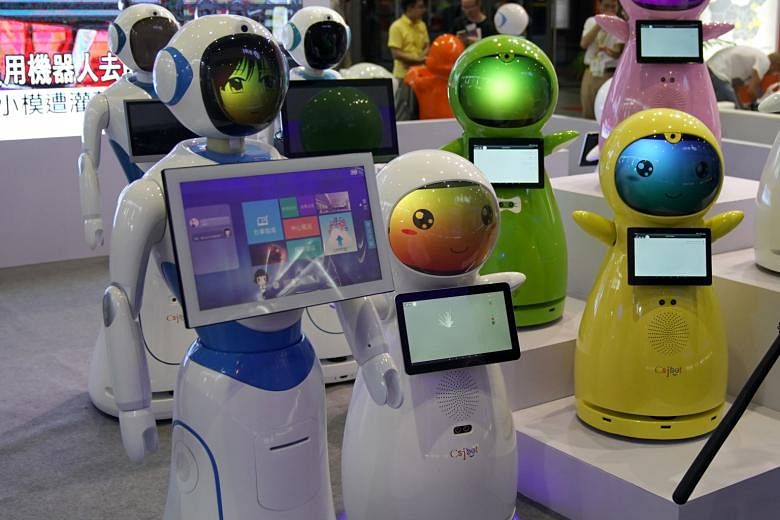BEIJING • China is installing more robots than any other nation, and that may affect every other nation.
Shipments jumped 27 per cent to about 90,000 units last year, a single-country record and almost a third of the global total, and will nearly double to 160,000 in 2019, the International Federation of Robotics (IFR) estimated.
The blazing pace has not dented Chinese wages yet but it might influence the global economy, said a Bloomberg Intelligence (BI) report.
Automation may drive productivity gains and export competitiveness, but the rising use of robots also threatens to exacerbate domestic income inequality, undermining consumption. That could spill out beyond the country's borders.
"By turbocharging supply and depressing demand, automation risks exacerbating China's reliance on export-driven growth - threatening hopes for a more balanced domestic and global economy," said BI economists Tom Orlik and Fielding Chen.
Pay gains are intact. Workers in manufacturing with high school education saw wages rise 53 per cent from 2010 to 2014, according to China Household Finance Survey data cited by BI. "Increasing use of robots should be bad news for medium-skilled workers, especially those in sectors where routine work means scope for automation," Mr Orlik and Mr Chen said. "Yet wage growth in China remains rapid, and if anything, medium-skilled workers conducting routine work are doing better than average."
Robots are at the core of the government's sweeping "Made in China 2025" plan to upgrade factories. Replacing assembly-line workers will also help offset a shrinking working-age population. While China is catching up to global leaders such as South Korea and Singapore, saturation is nowhere in sight and its density of robots is below the world average, the IFR said.
China is also buying more of its own robots. Under "Made in China 2025" and a five-year robot plan launched last year, Beijing plans to focus on automating key sectors such as car manufacturing, electronics, appliances, logistics, and food.
The government wants to raise the share of China-branded robots in the country's US$11 billion (S$15 billion) market to more than 50 per cent of total sales volume by 2020, from 31 per cent last year. It aims to produce 100,000 robots a year by 2020, compared with 33,000 in 2015. That means competition will intensify for foreign firms that supply 67 per cent of China's robots.
BLOOMBERG

